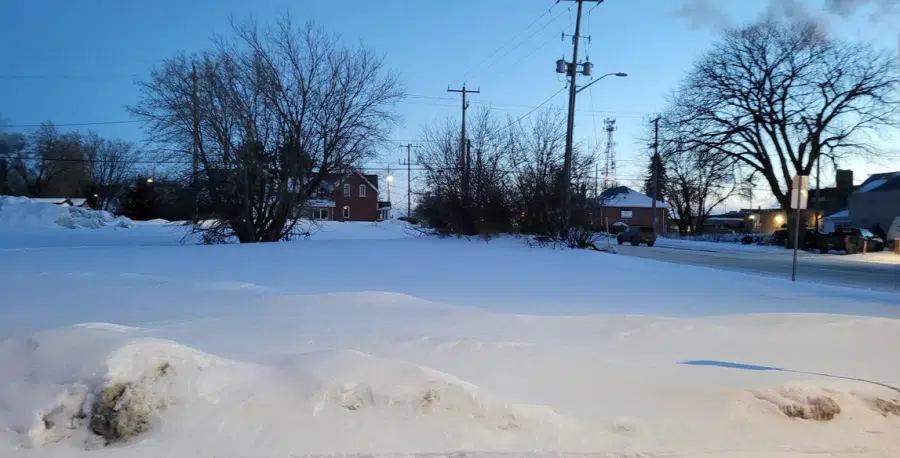Over 300 vacant property owners in Dryden will be receiving a monthly water bill from the city after a new bylaw was passed late last year – even if they don’t receive any services.
The bylaw’s expected to cost residents another $800 per year and a motion to review the situation was defeated at Dryden’s Council meeting on February 27.
But if the bylaw would have been rescinded – every Dryden property owner could have seen their monthly water rates increase and the city’s budget would have needed a rewrite.
Public Services Manager, Blake Poole, first presented his report on the ‘Infrastructure Renewal Fee for Unconnected Lots’ in November as part of the 2023 municipal budget process.
Poole explains the city collects fees from the water system to help maintain and repair the infrastructure needed to provide the service – including an aging water treatment plant, pipes, hydrants and more.
The report notes staff have been asked to find new ways to generate revenue for wastewater reserve funds, which will be needed when things like the treatment plant or the infrastructure underneath Duke Street need to be replaced.
Poole’s report proposed establishing an ‘unconnected lot’ water and wastewater charge for properties with ‘development potential’ in the area, as these lots could easily be tied-in to existing systems and still use nearby pipes, valves, fire hydrants and more for fire protection – but don’t pay for the service.
The proposal, which would affect roughly 330 property owners in the city, was approved in January with two flat rate fees of $33.67 – estimated to be about $800 a year in total.
But during February 13’s Committee of the Whole meeting, Councillor Catherine Kiewning filed a motion to review the 2023 User Fees and Charges bylaw – which was seconded and brought forward – meaning Councillors would be taking another look.
That all came after Dryden resident Al Cesiunas and concerned property owners gave a delegation to Council at City Hall about the issue.
Cesiunas explains vacant property owners are already forced to pay about $500 per year in property taxes, and with Ontario’s current economic crisis and already rising municipal bills, the situation will eventually become unsustainable for many current property owners.
“When this was first presented, I was under the impression that we wanted to implement this fee to encourage development on properties,” Kiewning explains.
“And then, it was brought to my attention that someone received a water and sewer bill for a parking lot, which will not be developed. I don’t think this is fair for this example. If there was a way that we could do this more equitably, then I would be on board.”
“I feel like we’ve put some people in a very tight position because there will never be an opportunity to develop that land or property, if it is as it is,” she adds.
Mayor Harrison notes some property owners have been able to appeal their bills successfully. He also explains the water treatment plant was built with those unconnected lots in mind, and many municipalities are going through similar discussions.
“The focus was on vacant lots that had the potential for development,” he explains. “A parking lot could become a building. You have to draw the line somewhere. It’s a challenging issue here. The question is, is everyone paying their fair share?”
“We’re at a point where if we want to do some paving, we can’t. We know sewer and water need to be upgraded, but we don’t have the capital to do that,” Harrison explains.
“There’s no sense repaving Duke Street if we have to rip it up in two years to replace the sewer and water. We’re in a difficult time with that infrastructure,” he adds.
Ultimately, the motion was defeated through a recorded vote as Councillor Kiewning was the lone supporter and the bylaw will remain in effect for the foreseeable future.
If her motion had passed, the user fees bylaw would have needed to be brought back to March’s Council meeting where staff would present more information and another vote could take place.
And if the bylaw was struck down in March, Dryden’s 2023 Municipal Operating and Capital budgets would have needed to be revised – needing another vote later on.
Chief Administrative Officer, Roger Nesbitt, notes Dryden’s water rates may have needed to be increased across the board to make up the difference in the budget if the bylaw was removed, as staff had already allocated those revenues.
Dryden residents didn’t see any water fee increases in 2023, but they did see a 10 per cent increase in 2022. The 2023 budget also includes a 2.65 per cent property tax levy increase.






Comments